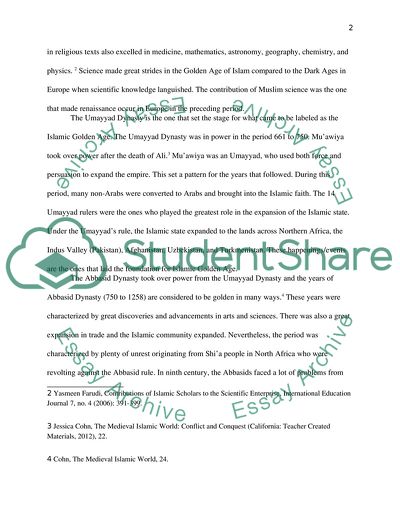Cite this document
(“Science in the medieval islamic world Essay Example | Topics and Well Written Essays - 1500 words”, n.d.)
Science in the medieval islamic world Essay Example | Topics and Well Written Essays - 1500 words. Retrieved from https://studentshare.org/history/1683573-science-in-the-medieval-islamic-world
Science in the medieval islamic world Essay Example | Topics and Well Written Essays - 1500 words. Retrieved from https://studentshare.org/history/1683573-science-in-the-medieval-islamic-world
(Science in the Medieval Islamic World Essay Example | Topics and Well Written Essays - 1500 Words)
Science in the Medieval Islamic World Essay Example | Topics and Well Written Essays - 1500 Words. https://studentshare.org/history/1683573-science-in-the-medieval-islamic-world.
Science in the Medieval Islamic World Essay Example | Topics and Well Written Essays - 1500 Words. https://studentshare.org/history/1683573-science-in-the-medieval-islamic-world.
“Science in the Medieval Islamic World Essay Example | Topics and Well Written Essays - 1500 Words”, n.d. https://studentshare.org/history/1683573-science-in-the-medieval-islamic-world.


